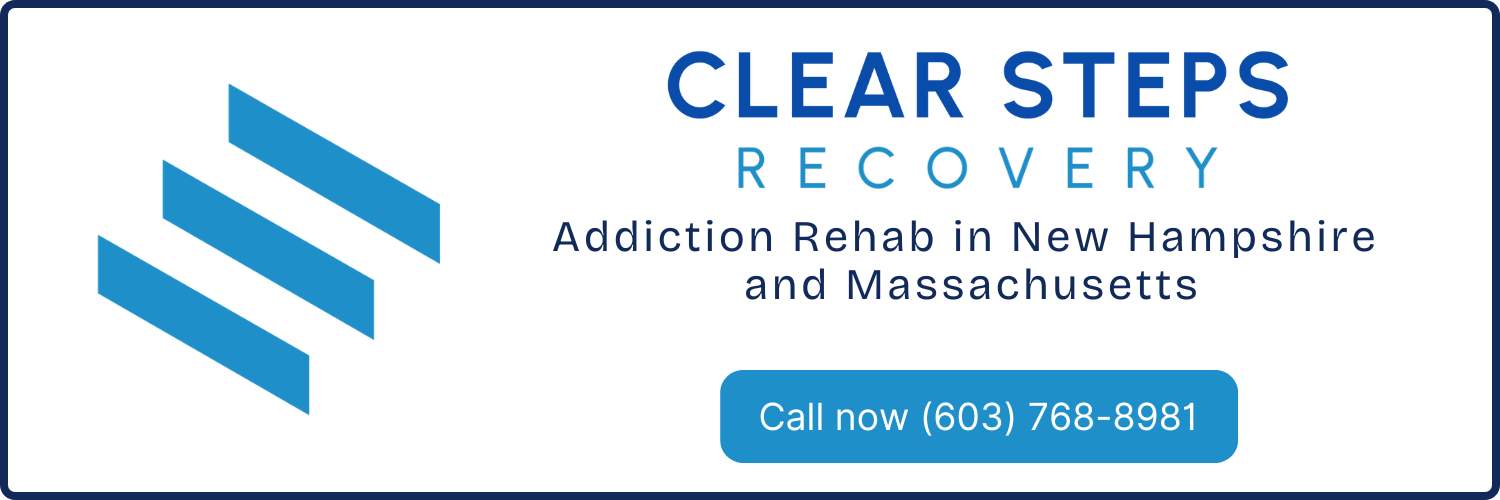Self-Care in Recovery: Building a Life You Don’t Want To Escape From
August 28, 2025
Discover the importance of self-care in recovery and how daily routines, emotional wellness, and healthy habits support lasting sobriety. Learn tips from Clear Steps Recovery.
In active addiction, life often feels like something to endure. Something to numb, escape, or outrun. Days blur together, emotions swing wildly or go flat, and even the smallest responsibilities can feel overwhelming. In that state, survival becomes the only goal.
But recovery opens the door to something far greater: the chance to build a life that feels safe, meaningful, and even joyful — a life you want to be present for.
Self-care isn’t a luxury in this process; it’s the foundation. It’s how we heal the damage, rebuild our identity, and learn to live with intention instead of impulse. In this article, we’ll explore what self-care really means in recovery, why it’s vital, and how to start building a life you no longer feel the need to escape.
Table of Contents
- What Does Self-Care Mean in Recovery?
- 3 Ways To Practice Emotional Self-Care in Recovery
- 3 Ways To Practice Physical Self-Care in Recovery
- 2 Ways To Practice Social and Spiritual Self-Care in Recovery
- Creating a Personalized Self-Care Plan
- Self-Care Is a Lifelong Investment: Let Clear Steps Recovery Be Your Guide
Self-care in recovery means intentionally meeting your physical, emotional, and spiritual needs to support healing, prevent relapse, and build a life rooted in stability and self-respect.
Addiction often thrives in self-neglect — skipped meals, ignored emotions, restless nights. Recovery is a chance to reverse that pattern and begin treating yourself like someone who matters.
At Clear Steps Recovery, self-care isn’t treated as an afterthought. It’s woven into every part of our holistic treatment model, through therapy, wellness practices, nutrition, rest, and connection. True healing requires more than sobriety. It requires learning how to care for yourself again, one day at a time.
#1: Identify and Express Your Emotions Safely
Many people in recovery struggle with emotional regulation, often because addiction was used as a way to numb or avoid painful feelings. Learning how to recognize and express emotions is a skill, not something you’re just supposed to “know how” to do.
Start by simply naming what you feel: angry, sad, anxious, ashamed, hopeful. You can use a feelings wheel to further identify and name what you are feeling.
Journaling, creative outlets, or talking to a therapist can help you process safely without acting on impulse. Emotional self-care isn’t about always feeling good. It’s about allowing your feelings to exist without letting them take over.

#2: Set Boundaries To Protect Your Peace
In recovery, your emotional energy is precious, and protecting it is part of healing. Setting boundaries helps you manage who and what you allow into your space, especially when it comes to people or situations that feel draining, chaotic, or unsafe.
This might mean limiting contact with someone who doesn’t respect your recovery, saying no to events that feel triggering, or carving out alone time to recharge.
Boundaries are not about control or punishment. They’re about honoring your needs and staying grounded in your values.
#3: Practice Self-Compassion Daily
Recovery is full of ups and downs. How you speak to yourself along the way matters. Self-compassion means giving yourself grace on the hard days, acknowledging your progress, and understanding that healing is not a straight line.
Instead of beating yourself up for setbacks or uncomfortable emotions, try asking: What would I say to a friend in this moment? Then offer yourself the same kindness. This daily practice helps shift your mindset from self-criticism to self-support.
At Clear Steps Recovery, emotional wellness is a core part of the healing process. Each care plan includes tools to help clients develop a healthier relationship with themselves. We offer this through therapy, mindset coaching, and personalized strategies that strengthen self-worth from the inside out.
#1: Prioritize Nutrition and Hydration
Substance use can deplete the body, leaving behind nutritional deficiencies, poor digestion, and energy crashes. Rebuilding starts with basics: eating regular meals, staying hydrated, and choosing foods that fuel and don’t drain you.
Start small. Add a vegetable to one meal a day, drink more water, or reduce sugary snacks that cause mood swings. Listen to your body, not diet trends.
At Clear Steps Recovery, clients receive nutritional guidance tailored to their needs during treatment, with support that can extend into aftercare. This helps lay a realistic, sustainable foundation for physical wellness — without judgment or extremes.
#2: Reclaim Rest and Sleep
When sleep is scarce, mood becomes volatile, and unstable emotions often fuel cravings, anxiety, and impulsive choices.
Research from the University of Chicago showed that even short-term sleep loss can suppress decision-making regions in the brain and amplify reward centers, making it harder to resist high‑calorie snacks, nearly doubling evening calorie intake in sleep-deprived individuals.
Restored, consistent sleep isn't just restorative, it's protective. In recovery, stabilizing your mood and cravings starts with prioritizing rest.
Starting with small habits — like a consistent bedtime, a calming nighttime ritual, or a dim, quiet room — can begin to rebuild the emotional regulation and resilience that addiction may have eroded.
#3: Move Your Body With Intention
Physical movement in recovery isn’t about pushing hard. It’s about reconnecting with your body in a way that calms the mind and steadies your emotions. A simple walk, gentle stretching, or yoga in nature can help center you when cravings or anxiety begin to rise.
Scientific research supports this: a meta‑analysis found that even moderate physical activity, such as brisk walking or aerobic exercise, can reduce symptoms of stress, anxiety, and depression, especially for people recovering from substance use disorders.
Another study shows that just 7,000 daily steps, far below the 10,000-step goal, can significantly lower depression risk.
Movement becomes most powerful when it’s meaningful and manageable. Whether it’s stepping outside for fresh air or moving gently to your favorite music, letting your body carry you into calmness is a form of emotional self-care in motion.
1: Connect With People Who Support Your Sobriety
There’s a saying in recovery: “Addiction thrives in isolation. Recovery grows through connection.” That’s because community offers what addiction takes away — accountability, encouragement, and the reminder that you’re not alone in what you’re feeling.
Whether it’s a 12-step group, a sober friend, a mentor, or a support group at your treatment center, surrounding yourself with people who truly understand and support your recovery can make all the difference.
At Clear Steps Recovery, connection is built into the foundation of treatment. Clients participate in group therapy, peer support, and family sessions during care, and that support doesn’t stop after discharge. Alumni programs and ongoing community events help keep those bonds strong, providing a safe space to stay grounded and grow beyond treatment.

#2: Explore Spiritual or Purpose-Driven Practices
Recovery is not just about breaking habits. It’s also about building a meaningful life. For many, spirituality or a sense of purpose becomes a powerful anchor. This doesn't have to be religious. Whether it’s through prayer, meditation, mindfulness, connecting with nature, community service, or personal reflection, spiritual care can take many forms.
Belief in a higher power — whatever that means to you — can offer a steady hand when willpower alone isn’t enough. Having a sense of purpose beyond yourself can be a strong deterrent to relapse. It can help you stay grounded when life gets messy, and offer direction when you're feeling lost.
The goal is to connect with something larger than the addiction — something that brings clarity, resilience, and hope.
Self-care isn’t about doing everything right. It’s about showing up for yourself with consistency and intention. In recovery, self-care is an act of commitment, not perfection.
It’s learning what supports your well-being and making space for those things in your daily life, even when it’s hard.
At Clear Steps Recovery, we work with clients to develop personalized, realistic self-care plans during aftercare — plans that fit into your life, not someone else’s ideal. Whether it's establishing a sleep routine, setting boundaries, practicing mindfulness, or finding small moments of joy, we help you define what self-care means for you and how to sustain it long term.
Remember: recovery isn’t a one-size-fits-all journey. And you don’t have to figure it out alone.
What Are Self-Care Activities for Sobriety?
Self-care in sobriety means caring for your whole self — body, mind, and spirit. It doesn’t have to be expensive or complicated. Small, consistent actions can build strength and stability in recovery.
Examples include:
- Daily walks or stretching
- Journaling or meditation
- Talking with a sponsor or friend
- Listening to uplifting music
- Preparing a healthy meal
- Attending a support group
- Practicing gratitude
- Setting small, achievable goals

True recovery goes beyond staying sober. It’s about building a life that feels worth staying sober for.
At Clear Steps Recovery, our holistic treatment programs support your whole self — mind, body, and spirit — so you can move forward with strength, clarity, and purpose. You don’t have to do it alone.

The content in this blog is not intended to be a substitute for professional medical advice, diagnosis, or treatment. Always seek the advice of your physician or other qualified health provider with any questions you may have regarding a medical condition.
Learn About Clear Steps Recovery and How We Can Help You
Once you reach out to Clear Steps Recovery, your path becomes clear, and you can get the help and support you need to break the cycle of addiction. Our serene woodland environment promotes physical, mental, emotional, and spiritual healing.
Call today or contact us online to get started.
The Path Is Clear – Take Your First Steps Today with Clear Steps Recovery
With our team and your desire to heal, we can improve your quality of life and functional abilities, so you can get back to living your best life.































.jpg)


















.jpg)
.jpg)
















































